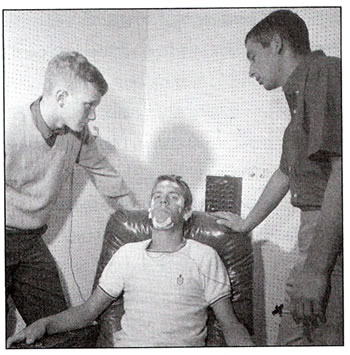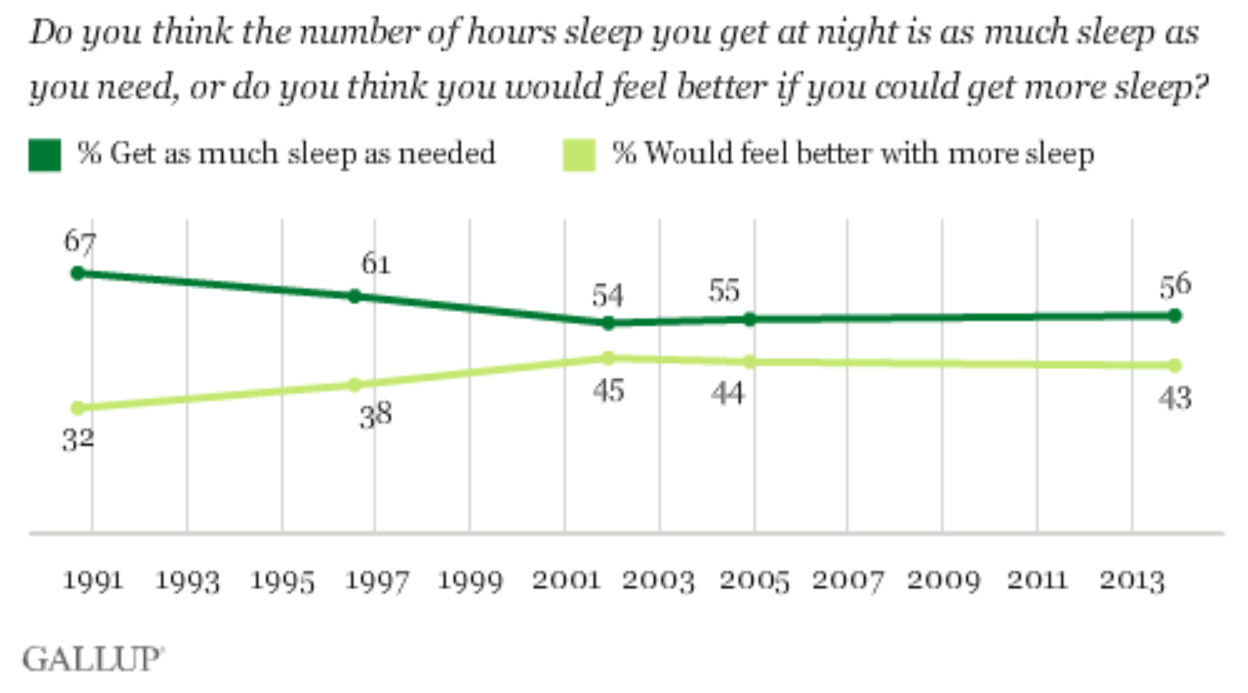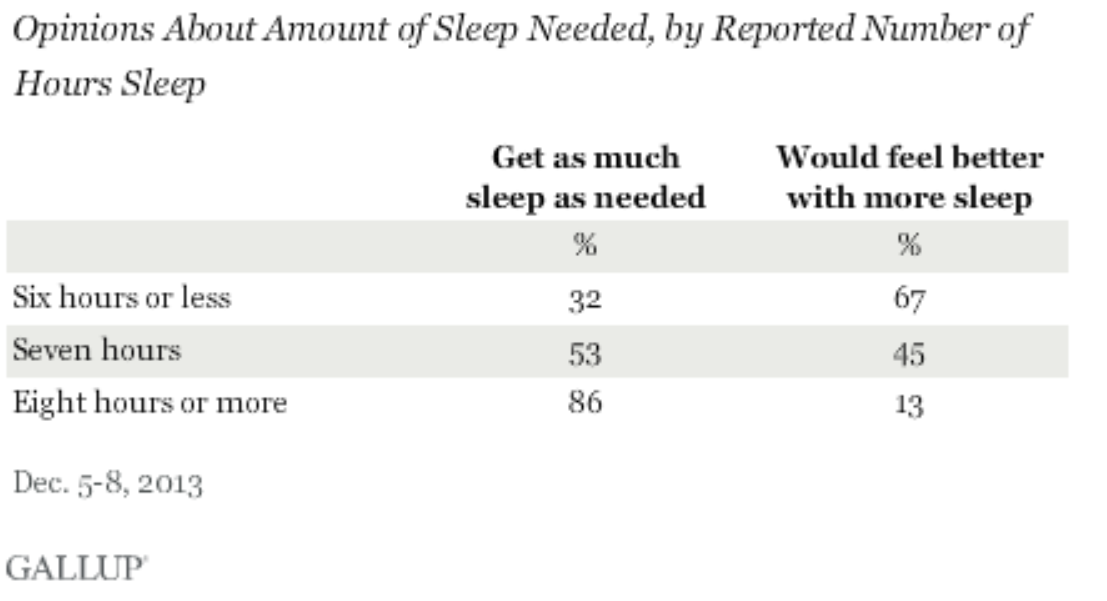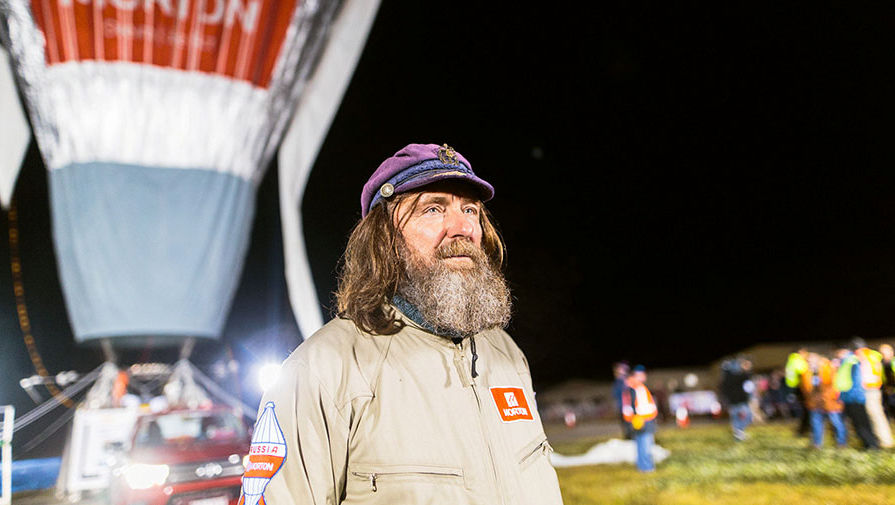Why we stopped sleeping and what to do about it
The record for finding without sleep is 11 days. The man who put him went through sound and visual hallucinations, thought he was a black basketball player, and confused traffic signs with people. An experiment of the last century on puppies showed that they can live no more than 5 days without sleep - several times less than without food. Lack of sleep deprives us of the ability to think soberly and affects health. However, many consciously deprive themselves of rest, working at night. In the world there is an "epidemic of lack of sleep."
Let's talk about why we stopped sleeping and what we face is the desire to earn more money, constantly working.
In 1963, high school students in San Diego, California, decided to find out how long a person can go without sleep. The experimental was 17-year-old Randy Gardner. Two classmates ensured that he did not sleep, and recorded all the data on Gardner’s condition, and lieutenant-commander John Ross was in charge of the student’s health.
On the first day of the experiment, Randy got up at six in the morning, full of enthusiasm. On the second day his eyes lost the ability to focus, it became impossible to watch TV. On the third day, Randy was nervous and capricious and could not pronounce the patters. Four days later, without sleep, he began to hallucinate that he was a black football player from the team of San Diego Chargers Paul Lowe . He confused road signs with people. In the end, Randy Gardner spent 11 days and 25 minutes without sleep.

Bruce McAllister on the left, Joe Marciano on the right - Randy Gardner's classmates.
After Gardner, there was another person who tried to break this record. Tony Wright also crossed the 11-day trait in 2007. All the time he was in the same room and struggled with sleep, sitting on the Net and playing billiards. But representatives of the Book of Records said they would not register attempts to break the Gardner record because of too strong a threat to health.
 Ancestor of somnology was the Russian biologist and doctor Maria Manaseina . At the end of the XIX century puppies became the victims of science. The control group of puppies she did not feed, but the main one - did not let her sleep. Four or five days later, the puppies died without sleep. Starving puppies died in 20-25 days.
Ancestor of somnology was the Russian biologist and doctor Maria Manaseina . At the end of the XIX century puppies became the victims of science. The control group of puppies she did not feed, but the main one - did not let her sleep. Four or five days later, the puppies died without sleep. Starving puppies died in 20-25 days.
An autopsy showed how the brain suffered without sleep. He was riddled with numerous hemorrhages. The results of the experiment were included in the work of Manaseina “Sleep as a third of human life, or physiology, pathology, hygiene and psychology of sleep” in 1888, one of the first books on this topic in the world, translated into many other languages.
Numerous studies have shown that lack of sleep causes people to increase the production of the stress hormone - cortisol. This is the body's natural reaction to stress, fatigue, fasting and other emergency situations. Due to cortisol, our body will begin to destroy proteins to amino acids - including those proteins that our muscles contain. Glycogen breaks down to glucose, and it, along with amino acids, is released into the blood to give us building material for recovery in an emergency. One of the effects of this biological response is obesity. A 2005 study found that sleep disorders affect a person’s ability to absorb glucose and eventually lead to diabetes.
Without sleep, we feel muscle pain, lose concentration, which we do not notice, we experience headache, irritability, memory lapses. Hallucinations, digestive disorders and nausea begin.
In the 1930s, the NKVD was deprived of sleep as torture, now this method is “in service” with the US Army and the CIA. Loud music and lack of sleep tortured people, for example, in the infamous Guantanamo prison . In California's Pelican Bay High Security Prison in 2015, they began to wake prisoners every 30 minutes with the sound of a gong, calling it "state check."
But here people were tortured. And many of us do not sleep because of a conscious choice. Or is he not fully aware?

The protest of caring people at the Pelican Bay prison
Matthew Walker, director of the Center for the Study of Human Sleep Science at the University of California at Berkeley, believes that we are dealing with an epidemic of lack of sleep. When we look at a sleeping baby, we don’t have a thought "this is a lazy child." With adults, it's the other way around. People brag about not sleeping. Phrases like "I worked so much that I slept only two hours," we pronounce with pride.
According to a 1942 study , 3% of the US population slept less than five hours a day, 8% - from five to six hours. 45% bashed in bed eight hours a day. In 2013, these figures changed greatly - already 14% slept less than five hours, 26% - up to six hours, and only 29% allowed themselves eight hours of sleep. Interestingly, in 1952 and 2013 an equal percentage of people sleeping seven hours a day were recorded.

Results of sleep surveys from 1942 to 2013 in the USA
Another interesting trend revealed by the American Institute of Public Opinion Gallup: fewer and fewer people believe that they have enough sleep. More and more people are confident that they will feel better if they can get enough sleep. At the same time, 86% of those who replied that they are sleeping enough spend at least eight hours a day sleeping.

Answers to the question "You sleep as much as you need, or you will feel better if you sleep more." United States, 1991-2013

The correlation between the answers to the question about the amount of sleep and state of health
How much sleep in Russia? The company Sleep Cycle in 2015 found that the average Russian sleeps 6 hours and 45 minutes. The study was based on sleep data in a smartphone application, which at that time was used by 941,300 people from 50 countries. And in 2017, Australian and American scientists decided that we sleep an average of 9 hours and 20 minutes . They focused on the activity of data exchange on the network, so I would not trust this study.
The reasons for reducing the time we spend on sleep seem quite obvious - this is electricity, followed by TV and the Internet. In addition, sleep interferes with work.
In connection with the penetration of broadband Internet, the development of mobile communication, the line between entertainment and work has become thinner if we are talking about professions that involve communication with colleagues via telephone or mail. Recently, more and messengers have become popular, and with them came to us dozens of workers and friendly chat rooms in Slack and Telegram . Work penetrates the lives of people, leaving them no time to rest.
As a result, people have become the only species on Earth that consciously deprives oneself of sleep without objective reasons. They forget, for example, that sleeping less than six hours a day leads to premature death: a study that covered a period of 25 years, 1.3 million people, and 100 thousand deaths proved this.

Laboratory for the Study of Sleep and Pain at the University of Warwick
Now let's talk about how to get enough sleep. Let's start with a polyphase sleep , in which a person sleeps several times a day. There are several different options for this type of sleep.

One of the most interesting examples of human life with polyphasic sleep is 5 and a half months, which American blogger Steve Pavlina spent in Uberman mode . During his "journey" to the new world with 30-40 extra hours a week, he kept a detailed diary. Already on the third day of adaptation, he began to dream, that is, his body began to enter the phase of REM sleep more quickly.
The traveler Fyodor Konyukhov after a round-the-world balloon trip in 2016 told me that he had slept in segments for about 11 days for about 11 seconds: he took a spoon in his hand, fell asleep with her and woke up when she fell to the floor. After landing, he fell asleep for 5 hours.

Polyphasic sleep as a necessity to perform any tasks like world travel on an airplane or in a balloon have the right to exist. However, the doctor of biological sciences, researcher Piotr Wozniak ( Piotr Woźniak ) notes that the consequences of such experiments are the same as of any other types of sleep disturbance. Adherents of polyphasic sleep turned directly to Wozniak, he investigated the effect of such a rhythm of life on their organisms, and did not find any evidence of the effectiveness of the method.
Polyphasic sleep is dangerous, as it affects the balance of the different stages of sleep that a person needs for full recovery. The only safe option for polyphasic sleep is biphasic: when a person sleeps for 7–8 hours at night, and during the day, he sets up a quiet hour for himself. Siesta is common in Spain, and daytime sleep is recommended for children of preschool age and in Russia.
Below is a 2008 video with one of the first experiments with polyphasic sleep on YouTube.
We continue the tips on the usual, monophasic version of the rest. The cosmonauts , who are obliged to follow the daily routine, have already shared their experience with people. Otherwise, they, like Valentine Lebedev, can take fifty photos of the Earth through a closed window.
NASA experts have identified several important points:
The sleep cycle is shifting. A person sleeps worse, and as a result, after a couple of weeks of not getting enough sleep, his condition can be compared with the state of intoxication. The one who is not getting enough sleep does not notice anything unusual. To avoid such problems, the astronauts gave us four tips:
Several more science-proven tips are presented in an article on Habrahabr . For quality sleep, it is necessary to ensure total darkness and a temperature of 30-32 degrees; if you sleep without a blanket, you should avoid light sources in the blue part of the spectrum and, of course, turn off the TV. And in the morning you need to charge.
Please share in the comments methods that allow you to get enough sleep, talk about the experience of polyphasic sleep and give your advice.
Let's talk about why we stopped sleeping and what we face is the desire to earn more money, constantly working.
Records
In 1963, high school students in San Diego, California, decided to find out how long a person can go without sleep. The experimental was 17-year-old Randy Gardner. Two classmates ensured that he did not sleep, and recorded all the data on Gardner’s condition, and lieutenant-commander John Ross was in charge of the student’s health.
On the first day of the experiment, Randy got up at six in the morning, full of enthusiasm. On the second day his eyes lost the ability to focus, it became impossible to watch TV. On the third day, Randy was nervous and capricious and could not pronounce the patters. Four days later, without sleep, he began to hallucinate that he was a black football player from the team of San Diego Chargers Paul Lowe . He confused road signs with people. In the end, Randy Gardner spent 11 days and 25 minutes without sleep.

Bruce McAllister on the left, Joe Marciano on the right - Randy Gardner's classmates.
After Gardner, there was another person who tried to break this record. Tony Wright also crossed the 11-day trait in 2007. All the time he was in the same room and struggled with sleep, sitting on the Net and playing billiards. But representatives of the Book of Records said they would not register attempts to break the Gardner record because of too strong a threat to health.
 Ancestor of somnology was the Russian biologist and doctor Maria Manaseina . At the end of the XIX century puppies became the victims of science. The control group of puppies she did not feed, but the main one - did not let her sleep. Four or five days later, the puppies died without sleep. Starving puppies died in 20-25 days.
Ancestor of somnology was the Russian biologist and doctor Maria Manaseina . At the end of the XIX century puppies became the victims of science. The control group of puppies she did not feed, but the main one - did not let her sleep. Four or five days later, the puppies died without sleep. Starving puppies died in 20-25 days.
An autopsy showed how the brain suffered without sleep. He was riddled with numerous hemorrhages. The results of the experiment were included in the work of Manaseina “Sleep as a third of human life, or physiology, pathology, hygiene and psychology of sleep” in 1888, one of the first books on this topic in the world, translated into many other languages.
Effects
Numerous studies have shown that lack of sleep causes people to increase the production of the stress hormone - cortisol. This is the body's natural reaction to stress, fatigue, fasting and other emergency situations. Due to cortisol, our body will begin to destroy proteins to amino acids - including those proteins that our muscles contain. Glycogen breaks down to glucose, and it, along with amino acids, is released into the blood to give us building material for recovery in an emergency. One of the effects of this biological response is obesity. A 2005 study found that sleep disorders affect a person’s ability to absorb glucose and eventually lead to diabetes.
Without sleep, we feel muscle pain, lose concentration, which we do not notice, we experience headache, irritability, memory lapses. Hallucinations, digestive disorders and nausea begin.
In the 1930s, the NKVD was deprived of sleep as torture, now this method is “in service” with the US Army and the CIA. Loud music and lack of sleep tortured people, for example, in the infamous Guantanamo prison . In California's Pelican Bay High Security Prison in 2015, they began to wake prisoners every 30 minutes with the sound of a gong, calling it "state check."
But here people were tortured. And many of us do not sleep because of a conscious choice. Or is he not fully aware?

The protest of caring people at the Pelican Bay prison
Statistics
Matthew Walker, director of the Center for the Study of Human Sleep Science at the University of California at Berkeley, believes that we are dealing with an epidemic of lack of sleep. When we look at a sleeping baby, we don’t have a thought "this is a lazy child." With adults, it's the other way around. People brag about not sleeping. Phrases like "I worked so much that I slept only two hours," we pronounce with pride.
According to a 1942 study , 3% of the US population slept less than five hours a day, 8% - from five to six hours. 45% bashed in bed eight hours a day. In 2013, these figures changed greatly - already 14% slept less than five hours, 26% - up to six hours, and only 29% allowed themselves eight hours of sleep. Interestingly, in 1952 and 2013 an equal percentage of people sleeping seven hours a day were recorded.

Results of sleep surveys from 1942 to 2013 in the USA
Another interesting trend revealed by the American Institute of Public Opinion Gallup: fewer and fewer people believe that they have enough sleep. More and more people are confident that they will feel better if they can get enough sleep. At the same time, 86% of those who replied that they are sleeping enough spend at least eight hours a day sleeping.

Answers to the question "You sleep as much as you need, or you will feel better if you sleep more." United States, 1991-2013

The correlation between the answers to the question about the amount of sleep and state of health
How much sleep in Russia? The company Sleep Cycle in 2015 found that the average Russian sleeps 6 hours and 45 minutes. The study was based on sleep data in a smartphone application, which at that time was used by 941,300 people from 50 countries. And in 2017, Australian and American scientists decided that we sleep an average of 9 hours and 20 minutes . They focused on the activity of data exchange on the network, so I would not trust this study.
The reasons
The reasons for reducing the time we spend on sleep seem quite obvious - this is electricity, followed by TV and the Internet. In addition, sleep interferes with work.
In connection with the penetration of broadband Internet, the development of mobile communication, the line between entertainment and work has become thinner if we are talking about professions that involve communication with colleagues via telephone or mail. Recently, more and messengers have become popular, and with them came to us dozens of workers and friendly chat rooms in Slack and Telegram . Work penetrates the lives of people, leaving them no time to rest.
As a result, people have become the only species on Earth that consciously deprives oneself of sleep without objective reasons. They forget, for example, that sleeping less than six hours a day leads to premature death: a study that covered a period of 25 years, 1.3 million people, and 100 thousand deaths proved this.

Laboratory for the Study of Sleep and Pain at the University of Warwick
Polyphasic sleep
Now let's talk about how to get enough sleep. Let's start with a polyphase sleep , in which a person sleeps several times a day. There are several different options for this type of sleep.
- Biphasic - 5-7 hours at night, 20 minutes during the day.
- Everyman - 1,5-3 hours at night, 3 times for 20 minutes during the day.
- Dymaxion - 4 times for 30 minutes every 5.5 hours;
- Uberman - 6 times for 20 minutes every 3 hours and 40 minutes;

One of the most interesting examples of human life with polyphasic sleep is 5 and a half months, which American blogger Steve Pavlina spent in Uberman mode . During his "journey" to the new world with 30-40 extra hours a week, he kept a detailed diary. Already on the third day of adaptation, he began to dream, that is, his body began to enter the phase of REM sleep more quickly.
One of the most important (and extremely unexpected) events that occurred to me during the practice of polyphasic sleep was a change in the perception of the passage of time, during my naps. Now, after waking up, I feel that much more time has passed than the clock shows. Almost every time I wake up, I am sure (on physical sensations) that I have slept for at least 1-2 hours. My sleep is deeper and stronger than ever before. I have very intense and vivid dreams.The Solar Impulse pilots, the first manned aircraft in the world who uses only the energy of the Sun and is able to fly for an indefinitely long time (of course, with a quality study of the route, of course) have become forced adherents of polyphase sleep. Bertrand Picard and Andre Borschberg slept two to three hours a day in several visits for 20 minutes. During the preparation for the flight, they were learning how to quickly achieve deep sleep.
The traveler Fyodor Konyukhov after a round-the-world balloon trip in 2016 told me that he had slept in segments for about 11 days for about 11 seconds: he took a spoon in his hand, fell asleep with her and woke up when she fell to the floor. After landing, he fell asleep for 5 hours.

Polyphasic sleep as a necessity to perform any tasks like world travel on an airplane or in a balloon have the right to exist. However, the doctor of biological sciences, researcher Piotr Wozniak ( Piotr Woźniak ) notes that the consequences of such experiments are the same as of any other types of sleep disturbance. Adherents of polyphasic sleep turned directly to Wozniak, he investigated the effect of such a rhythm of life on their organisms, and did not find any evidence of the effectiveness of the method.
Polyphasic sleep is dangerous, as it affects the balance of the different stages of sleep that a person needs for full recovery. The only safe option for polyphasic sleep is biphasic: when a person sleeps for 7–8 hours at night, and during the day, he sets up a quiet hour for himself. Siesta is common in Spain, and daytime sleep is recommended for children of preschool age and in Russia.
Below is a 2008 video with one of the first experiments with polyphasic sleep on YouTube.
How to sleep right
We continue the tips on the usual, monophasic version of the rest. The cosmonauts , who are obliged to follow the daily routine, have already shared their experience with people. Otherwise, they, like Valentine Lebedev, can take fifty photos of the Earth through a closed window.
NASA experts have identified several important points:
- Without sunlight and darkness, a person loses the ability to regulate sleep time.
- The body does not withstand activity 24 hours a day.
- A person can not correctly assess the quality of sleep.
The sleep cycle is shifting. A person sleeps worse, and as a result, after a couple of weeks of not getting enough sleep, his condition can be compared with the state of intoxication. The one who is not getting enough sleep does not notice anything unusual. To avoid such problems, the astronauts gave us four tips:
- Make a schedule for yourself, even on weekends. If you do not follow the mode, the sleep phase will begin to lag. About the benefits of graphics in personal experience told on Geektimes before .
- An hour before bed, relax.
- Let the contrast between day and night become clearer.
- Let your bedroom be dark, cool and quiet.
Several more science-proven tips are presented in an article on Habrahabr . For quality sleep, it is necessary to ensure total darkness and a temperature of 30-32 degrees; if you sleep without a blanket, you should avoid light sources in the blue part of the spectrum and, of course, turn off the TV. And in the morning you need to charge.
Please share in the comments methods that allow you to get enough sleep, talk about the experience of polyphasic sleep and give your advice.
All Articles